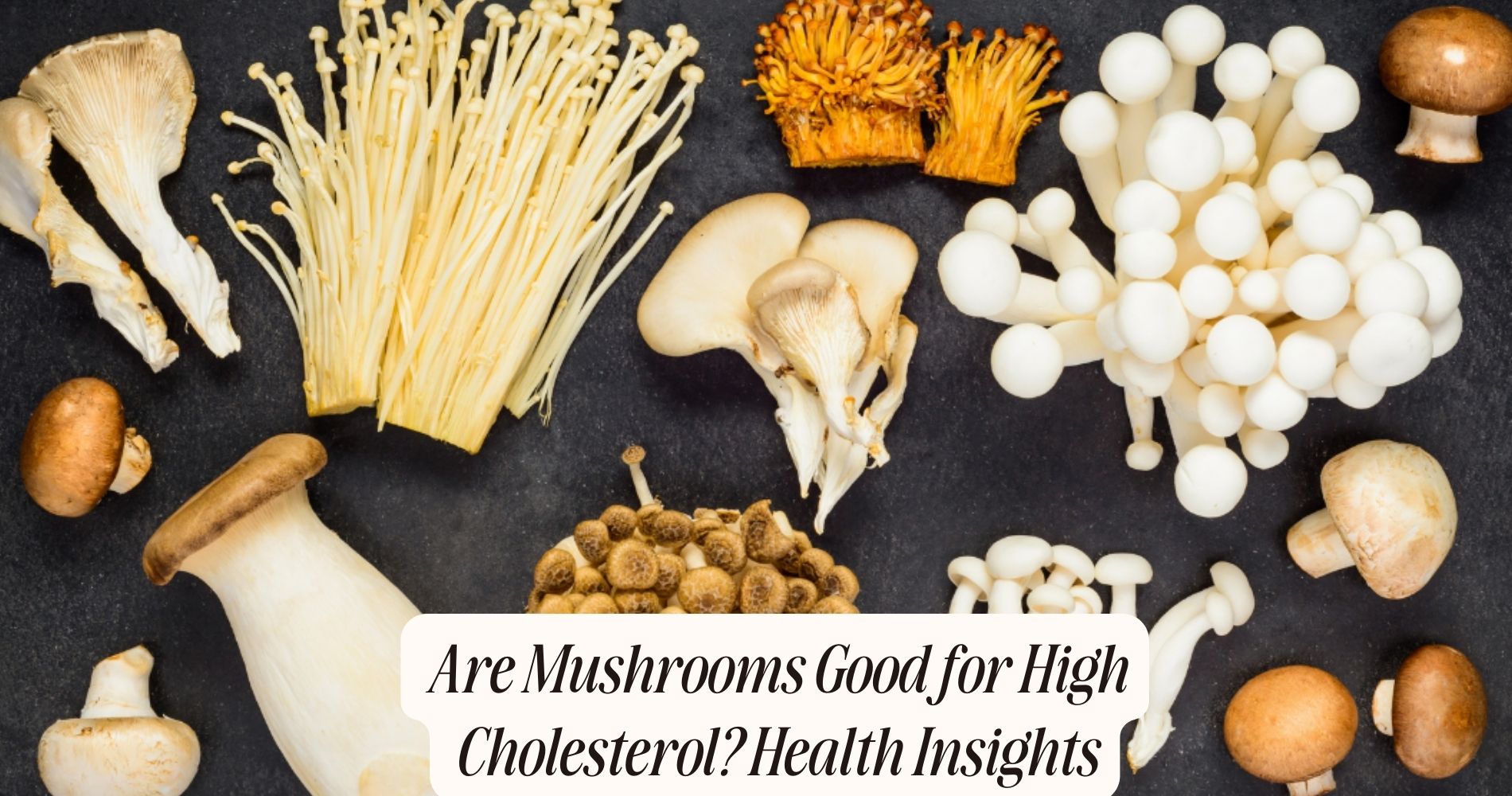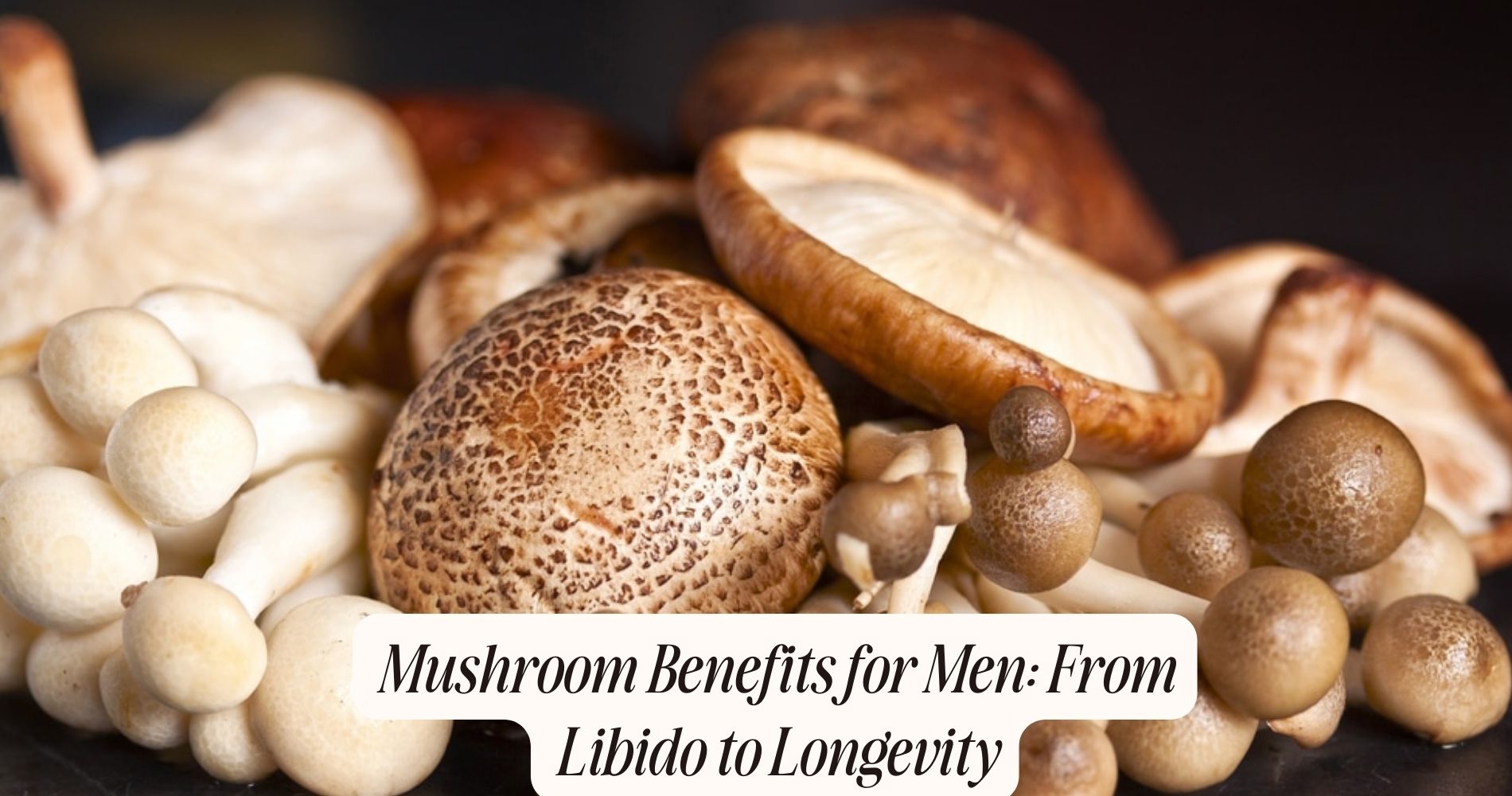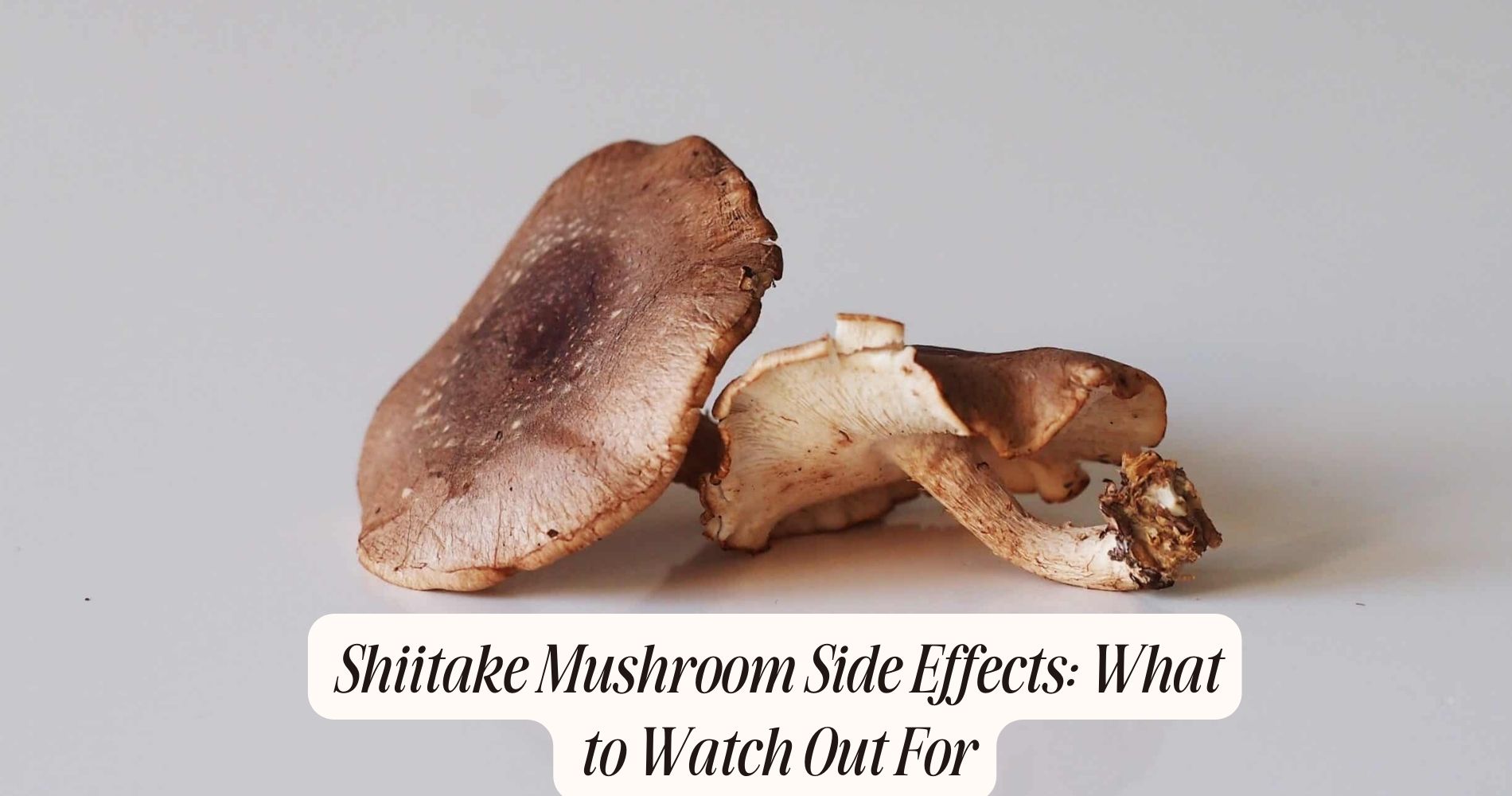
Are Mushrooms Good for High Cholesterol? Health Insights
Are mushrooms good for high cholesterol? Yes, mushrooms can help manage high cholesterol. They contain bioactive compounds like beta-glucans and ergosterol, which reduce LDL cholesterol and support heart health. Mushrooms are low in calories and rich in nutrients like selenium, potassium, and B-vitamins. Studies show that regularly consuming mushrooms can notably lower LDL cholesterol levels. Varieties such as shiitake, oyster, and reishi are particularly effective. Incorporate them into salads, soups, or use them as meat substitutes to enhance your diet. There's compelling evidence that these fungi can be a heart-healthy addition to your meals. Keep exploring to uncover more benefits!
Nutritional Profile of Mushrooms
When you're considering ways to manage high cholesterol, mushrooms stand out due to their impressive nutritional profile. These fungi are low in calories and fat but rich in essential nutrients.
Their vitamin content includes B-vitamins such as riboflavin, niacin, and pantothenic acid, which are important for maintaining good metabolic health. B-vitamins help your body convert food into energy, support brain function, and keep your skin and eyes healthy.
Mushrooms also boast a remarkable mineral composition. They're an excellent source of selenium, an antioxidant that protects cells from damage. Additionally, they're rich in potassium, which helps regulate blood pressure—a key factor in heart health. Another mineral found in mushrooms is copper, essential for forming red blood cells and maintaining healthy bones and nerves.

Including mushrooms in your diet can be a practical step toward managing high cholesterol. You can easily add them to salads, stir-fries, and soups. Because they're versatile and absorb flavors well, they can replace higher-fat ingredients in many recipes.
Bioactive Compounds in Mushrooms
In addition to their rich nutritional profile, mushrooms are packed with bioactive compounds that can positively impact cholesterol levels. These compounds, including beta-glucans and ergosterol, play an important role in maintaining your heart health. Beta-glucans, for instance, are known for their ability to reduce LDL cholesterol, which is often referred to as 'bad' cholesterol.
By incorporating mushrooms into your diet, you can help support your immune system and manage your blood pressure more effectively.
Beta-glucans not only lower cholesterol but also enhance immune support by stimulating the activity of immune cells. This dual action makes them particularly valuable in promoting overall health.
Ergosterol, a precursor to vitamin D, assists in the regulation of cholesterol synthesis in your body, further aiding in the management of blood cholesterol levels.
Incorporating mushrooms like shiitake, maitake, and reishi into your meals can be a practical and delicious way to harness these benefits. Whether you sauté them, add them to soups, or use them in salads, you're making a heart-healthy choice.
Mushrooms and Cholesterol Studies
Scientific studies have consistently shown that incorporating mushrooms into your diet can greatly reduce LDL cholesterol levels. Researchers have explored various cholesterol mechanisms that mushrooms influence. For example, they found that mushrooms can increase the activity of receptors in the liver that clear LDL cholesterol from your bloodstream. This helps reduce overall LDL cholesterol levels, often referred to as 'bad' cholesterol.

Several study findings back up these claims. One study published in the 'Journal of Nutrition' showed that participants who consumed mushrooms regularly experienced a significant drop in their LDL cholesterol levels.
Another study from the 'International Journal of Medicinal Mushrooms' found that specific compounds in mushrooms, such as beta-glucans and sterols, play an important role in lowering cholesterol.
Types of Mushrooms to Eat
Given the compelling evidence that mushrooms can lower LDL cholesterol, it's important to know which types of mushrooms you should include in your diet.
Certain mushroom varieties stand out due to their cholesterol-lowering properties and culinary uses.
First, consider Shiitake mushrooms. They contain eritadenine, a compound proven to lower cholesterol levels. Shiitakes are versatile and can be added to soups, stir-fries, or grilled for a tasty side dish.

Next, Oyster mushrooms are another excellent choice. Rich in beta-glucans, they help reduce cholesterol and are great when sautéed or added to pasta dishes.
Reishi mushrooms, though not typically used in everyday cooking, offer significant health benefits. They're often consumed as a supplement or brewed into teas, providing potent cholesterol-lowering effects.
Additionally, Portobello mushrooms are a good option. They're high in fiber and can be grilled or stuffed, making them a hearty main dish.
Lastly, Maitake mushrooms, also known as 'hen of the woods,' are high in antioxidants and perfect for roasting or adding to stews.
Incorporating Mushrooms in Your Diet
You can easily incorporate mushrooms into your diet by adding them to your favorite dishes like salads, omelets, and pasta. Their culinary versatility makes them a great addition to almost any meal.
For example, you can sauté mushrooms with olive oil and garlic as a simple side dish or mix them into a stir-fry for added flavor and nutrition.
When meal planning, consider using mushrooms as a meat substitute. They have a meaty texture and can absorb flavors well, making them ideal for dishes like mushroom burgers or mushroom tacos. Additionally, you can use mushrooms in soups, stews, and casseroles to enhance both texture and taste.
To get started, try adding sliced mushrooms to your morning omelet, or toss them into a lunchtime salad for a nutrient boost. You can even blend mushrooms with ground meat to create a healthier version of your favorite meat dishes.
Frequently Asked Questions
Can Mushrooms Help Reduce Triglyceride Levels?
Yes, mushrooms can help reduce triglyceride levels. Fungal compounds in mushrooms influence lipid metabolism, leading to lower triglycerides. Incorporate mushrooms into your diet as part of a balanced approach to improving your lipid profile.
Are There Any Side Effects of Eating Too Many Mushrooms?
If you eat too many mushrooms, you might experience digestive issues like bloating or diarrhea. Allergic reactions are also possible, so watch for symptoms like skin rashes or breathing difficulties. It's best to consume them in moderation.
How Do Mushrooms Compare to Other Cholesterol-Lowering Foods?
When you compare mushrooms to other cholesterol-lowering foods, they offer unique nutritional benefits and antioxidant properties. They may not be as effective as oats or nuts, but they're a valuable addition to a balanced diet.
Is It Safe to Consume Mushrooms Daily for Cholesterol Management?
Yes, you can safely consume mushrooms daily for cholesterol management. Their nutritional profile supports heart health. Stick to a moderate daily dosage, and integrate them with other cholesterol-lowering foods for the best results.
Do Cooking Methods Affect Mushrooms' Cholesterol-Lowering Properties?
Yes, cooking methods do affect mushrooms' cholesterol-lowering properties. Using healthy cooking oils and techniques like steaming can help retain their antioxidants. Avoid frying as it may reduce their beneficial effects.
Conclusion
Eating mushrooms can positively impact your cholesterol levels. Their nutritional profile, rich in fiber and bioactive compounds, supports heart health.
Studies demonstrate that regular mushroom consumption can lower bad cholesterol. To maximize benefits, include a variety of mushrooms like shiitake and oyster in your meals.
Incorporate them into soups, salads, and stir-fries for a delicious and heart-healthy diet. Always consult your doctor before making significant dietary changes.




